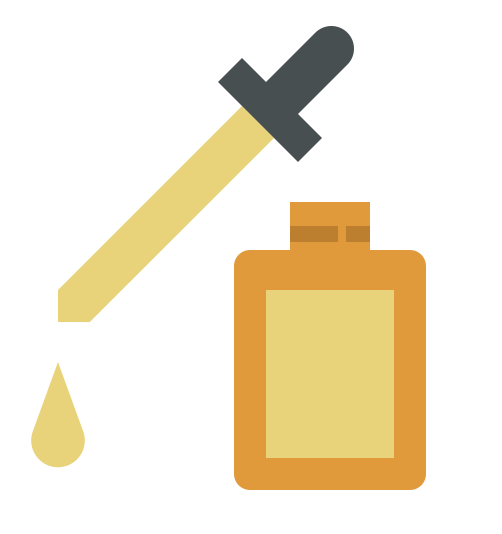
FDA
FDA - Imports of cosmetics into the United States
For products to be imported to the United States, these must be compliant with the FDA regulations for the sale of cosmetic products in America
https://www.exportusa.eu/cosmetics_intro.php (+1) 718-5225575
(+1) 718-5225575
Millennials, as digital pioneers, have different cosmetic concerns from their parents. They have known and lived through the pre-Internet era, but their biggest worry growing up has become the digital stress given by hyperconnectedness. At the same time, however, the time spent online stimulated their desire for information, experimentation with new trends, and sharing. The last aspect is of no minor importance since the concept of the "beauty secret" has disappeared among American Millennials in favor of freely sharing with partners, friends, relatives and, no less critical, followers on social networks.
This generation of young Americans is also more interested in quality over quantity and, having purchasing power, they do not mind spending more on a product if they feel it meets their needs.
Gen Z has confirmed the Millennials' trends while introducing revolutionary ones. Born and immersed in the digital world, they are even more informed and faster, though often less accurate, than the previous generation. They influence each other by adhering to real but mostly virtual communities, which are favored because they are created based on passions and not economic background or level of education. They have clear ideas and a need for treatments that act quickly, prompting cosmetic companies to work on product performance.
Representing about a quarter of the total U.S. population, Generation Z members are very influential in the U.S. and global markets, and their priorities consequently become the priorities of international companies that want to stand out in the U.S.. They are much more attentive than their predecessors to the issue of inclusivity, so in America companies are experimenting with campaigns aimed at introducing a range of colors suitable for all skin tones (see the case of Fenty Beauty), and it is thanks to them that products are increasingly genderless, carrying forward a goal already started by Millennials
In recent years, concern for the environment and respect for all forms of life have become critically important, and young Americans have boycotted brands that did not meet sustainability requirements in every way, moving toward a vegan and cruelty-free market.
The "Zero Waste" trend, which broke out between 2019 and 2020, has also become a mantra for beauty brands, responding to a need that is now impossible to ignore. The goal is to combine the need not to waste, especially in terms of packaging, with the need not to compromise quality and aesthetics. Indeed, the U.S. Gen Z is also very attentive to the beauty of the packaging so that it can be "Instagrammable".
Many brands have therefore begun to rely on the principles of the Sustainable Life Cycle Assessment, which is a procedure for assessing the impact on the environment and society of a product during its life cycle, leading American companies to produce not only packaging with recyclable materials, but also refillable bottles. Refills can be a simple and practical strategy to extend the life of cosmetic containers indefinitely, preventing them from becoming mere waste: by buying the entire product once, subsequent refills can be made directly in the store or by purchasing the appropriate refills.
According to The LCA Centre, an independent center for the study of the environmental impact of packaging, buying a refill instead of a new product can save about 70% CO2, 65% energy and 45% water, figures that should not be underestimated in an industry such as cosmetics that produces about 120 million units of packaging per year. The solution is ideal for consumers who are loyal to a particular product, while it is more challenging for those who like to change their cosmetics constantly or who prefer convenience to environmental consciousness.
The main reason is the need to try the product, see its color and smell and feel its texture, which is impossible to do online. In fact, despite the introduction of innovative AR technologies in many U.S. brand e-shops, the gap between online and offline products is too evident to trust; moreover, the in-store experience is a crucial socialization moment for those who spend most of their lives behind a screen.
The recent pandemic has also affected changes in the cosmetic world. Gen Z is still very young, further removed than Millennials from concerns about aging skin, but prolonged stay-at-home has reduced the use of makeup in the daily routine in favor of greater care for skin health. The use of face masks has also been a game changer as its prolonged use has adverse effects on the skin, causing redness, dryness and increased impurities. To address the new problems that have arisen, the focus has therefore shifted to the importance of skincare, with products that can soothe, moisturize and regenerate the skin.
Interest in makeup has not waned, it just changed shape. Having most of one's face covered by PPE, the focus has shifted to the eyes, favoring the use of brightly colored and glittery eye shadows, excellent allies against the gloom of the moment. As for facial skin, on the other hand, high-coverage foundations and exaggerated contouring have given way to lighter and brighter bases, aimed at enhancing one's bodily features and not disrupting them.
In this context, the success of Selena Gomez's beauty brand Rare Beauty is nothing short of impressive, as it testifies to the current need for naturalness among American makeup-addicted consumers: the brand's mission is female empowerment through the enhancement of authentic beauty, highlighted by essential skincare and light makeup products that are suitable for every skin tone.
Placing itself perfectly in line with the current needs of America's leading cosmetics consumers, the brand sums up all the drives of a consumer trend destined to supplant previous ones: the need to eliminate the desire for perfection, to feel confident, to accept yourself by no longer comparing yourself to others and appreciating your uniqueness.

For products to be imported to the United States, these must be compliant with the FDA regulations for the sale of cosmetic products in America
https://www.exportusa.eu/cosmetics_intro.php
ExportUSA takes care of ensuring that your products adhere to FDA standards. We make sure that all food products, cosmetics, medical devices, and dietary supplements comply with FDA regulations.
https://www.exportusa.eu/fda-compliance-exportusa.php
With the United States leading the cosmetics market, more and more celebrities are choosing to launch beauty brands in America
https://www.exportusa.eu/launch-cosmetic-brand-unitedstates.php
The growth of the nail care sector in the U.S. cosmetics industry
https://www.exportusa.eu/nail-products-trends-united-states.php
2022 will be the year of all-around health in the US: consumer demand in the beauty industry has shifted to niche products that have now become must-haves
https://www.exportusa.eu/guide-cosmetic-products-us-2022.php